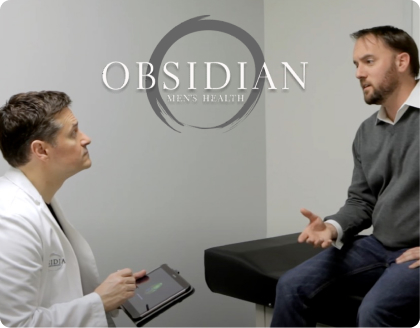Testosterone deficiency is a medical condition that can affect young and old men, alike. Physicians often ignore the symptoms of low testosterone in younger men due to preconceived notions that only men over the age of 50 can suffer from the condition. Doctors keen enough to discover the condition in younger men often withhold treatment fearing side effects such as infertility. Worse yet, some doctors prescribe testosterone to men without warning them of the infertility potential associated with treatment due to their own ignorance. How can low T be treated in men wishing to preserve their fertility? What are the infertility risks associated with testosterone therapy and how can they be mitigated? Here are some answers to these very important questions.
First and foremost, be aware that any form of synthetic testosterone (gel, injection or pellet) will cause low sperm counts in men, often inhibiting sperm production completely. This means your sperm count may be ZERO while taking testosterone, in any form. The dosage of testosterone does NOT matter. Some patients are told by doctors that sperm production is maintained on testosterone therapy as long as the dose is “not excessive”. This is completely FALSE. Any dose of testosterone, can and will, suppress sperm production. There is no “safe” dosage of testosterone when it comes to the issue of fertility.
Another common misconception is that men on testosterone therapy can simply stop treatment if they want to have children. Even doctors will inform patients that sperm production will resume normally once they stop testosterone. This is also, totally FALSE. While it’s true that some men will recuperate normal testicular function with testosterone cessation, some men certainly do NOT. The exact magnitude of infertility risk depends on a multitude of factors. But, the truth is that we cannot predict with accuracy who will be rendered permanently infertile from testosterone. This cold hard fact remains true even when men are placed on drugs to “stimulate” endogenous testicular function after ceasing testosterone therapy.
So, how can we successfully treat men with low testosterone who do not want to jeopardize their ability to father children? The best approach is to utilize medications that signal the testicle to increase testosterone production. Clomiphene and human chorionic gonadotropin are the two most common drugs used to boost “natural” testosterone levels. Neither drug will compromise or impair fertility. An alternative approach is to use injectable testosterone along with HCG (at a lower dose compared to HCG monotherapy) in order to maintain sperm production. The problem with this alterative approach lies in the lack of well powered studies proving long term efficacy. Small studies with limited follow-up have demonstrated that sperm production is maintained. when HCG is combined with synthetic testosterone.
A tactic that should NOT be used to preserve fertility is “cycling”. Cycling is a term often used to describe intermittent testosterone usage. Men go on synthetic testosterone for weeks or months and then stop therapy. Often they will use medications like Clomid or HCG in order to “reboot” their testicles. This approach to testosterone usage is often employed by athletes and body builders who are using testosterone illegally for it’s performance enhancing attributes. This is not a viable, medically acceptable approach to treating testosterone deficiency and it certainly does not guarantee fertility in men abusing steroids.
Keep in mind that some men on testosterone can and will conceive children. Testosterone is certainly NOT a form of birth control. However, testosterone can have deleterious effects on fertility in men being treated for testosterone deficiency syndrome and these concerns must be addressed in a logical manner by an expert in the field..

